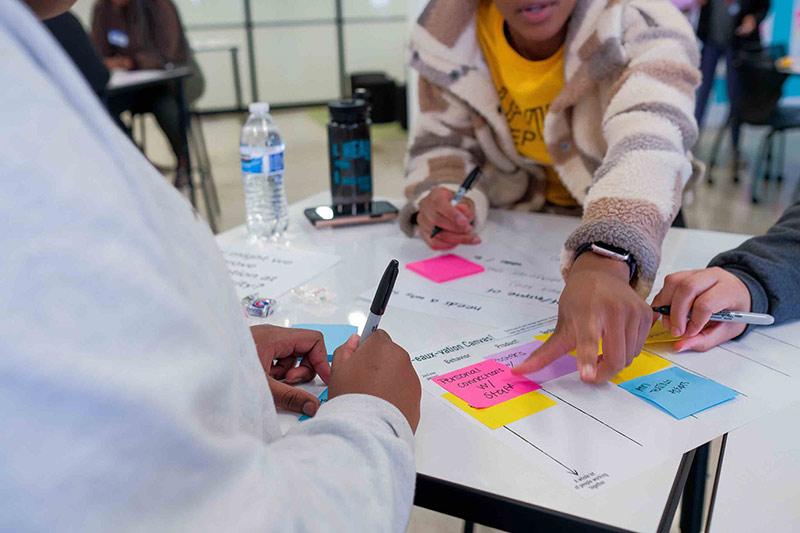Tulane awarded funding to bring patient perspective to COVID-19 research
Tulane University has been awarded $150,000 from the Patient-Centered Outcomes Research Institute to use equity-focused design to improve community participation in public health research against COVID-19.
The Eugene Washington PCORI Engagement Award will fund an equity focused, human centered design process to understand the needs and values of underrepresented stakeholders around patient-centered outcomes research (PCOR) and produce an equity-centered design thinking toolkit for communities to improve engagement in research.
“It’s critically important that we hear from people experiencing the impacts of COVID19 in the community setting, and that we use those voices to inform our research priorities going forward,” said award recipient Alessandra Bazzano, PhD, associate professor at Tulane University School of Public Health and Tropical Medicine and Carnegie Corporation of New York professor of social entrepreneurship at Tulane’s Phyllis M. Taylor Center for Social Innovation and Design Thinking.
Bazzano will lead the project with Lesley-Ann Noel, PhD, professor of practice at Tulane University School of Architecture and associate director for design thinking for social impact at the Taylor Center.
Racial disparities and social determinants shape health inequality in the United States. The COVID19 pandemic disproportionately impacts vulnerable groups, particularly minority populations, incarcerated and formerly incarcerated people, and those unable to practice physical distancing. People most likely to be impacted by the pandemic are excluded or underrepresented in much research, both as participants and researchers, Bazzano said.
“Input from community members has too often been left out of research in the past and is at risk of being sidelined in health emergencies like this, but this input is crucial to making research beneficial for our hardest hit populations and improving responsiveness to day-to-day needs,” Bazzano said. “Health research in this pandemic isn’t just for scientific journals and academics. It is for everyone, and likewise should include all voices for improving health equity.”
Design thinking is a human-centered approach that draws from the designer's toolkit to put people at the heart of understanding, experimenting and acting when addressing challenges.
“I’m really excited to see how we can leverage the best elements of the way we think, work and do research as designers to support people in medicine and public health to create research agendas around COVID-19,” Noel said. “I’m certain that the human-centeredness and participatory nature of our approaches can contribute to adding the patient voice to medical research agendas.”
The project will build an advisory core of patient community members, drawn from groups underrepresented in research, who will engage in equity-centered design thinking activities and a research prioritization process.
Partners include the Taylor Center for Social Innovation and Design Thinking and the Louisiana Public Health Institute as well as patient partners committed to the project.
The Patient-Centered Outcomes Research Institute is an independent, nonprofit organization authorized by Congress in 2010 to fund comparative effectiveness research that will provide patients, their caregivers, and clinicians with the evidence needed to make better-informed health and healthcare decisions. PCORI is committed to seeking input from a broad range of stakeholders to guide its work.

